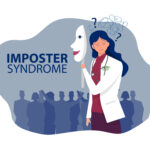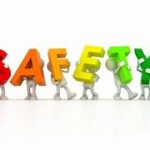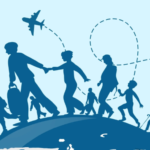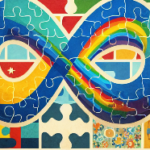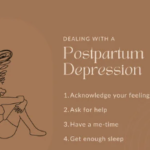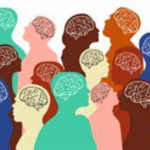Want to learn about the state of autism diagnosis and services in Nigeria? You are in the right place. Now, imagine being a parent in Nigeria of over 200 million people, watching your child struggle with social interactions, repetitive behaviors, and delayed speech, but not knowing why.
You seek help, but instead of finding support, you face doctors who are not trained to recognize the signs, traditional healers who insist it’s spiritual, and a society that casts judgment and stigma.
This is the reality many families across Nigeria face as they navigate the deeply complex and often frustrating world of autism diagnosis and services.
Autism, or autism spectrum disorder (ASD), affects millions of people globally, and while awareness has grown in many countries, Nigeria lags behind.
For you, if you are a Nigerian parent or a concerned citizen, this is a growing public health crisis that demands immediate attention. The state of autism diagnosis and services in Nigeria is not just inadequate—it’s in a state of emergency.
The Growing Prevalence of Autism in Nigeria
In recent years, there has been a noticeable rise in autism diagnoses worldwide, with estimates that one in 100 children is on the autism spectrum, according to the World Health Organization (WHO).
You might find the following publication interesting in line with this ‘Autistic disorder in Nigeria: profile and challenges to management’. In the study, they described the profile of autistic disorder among Nigerian children and appraised short-term outcomes. It’s available at NCBI Literature Resources.
Children, according to the publication were “seen at the pediatric neurology and the child psychiatry clinic of the University College Hospital, Nigeria were screened for autistic disorder using the American Psychiatric Association’s Diagnostic and Statistical Manual IV.”
While the prevalence of autism in Nigeria is still uncertain due to a lack of comprehensive data, experts believe that cases are drastically underreported. Autism does not discriminate by region, race, or socioeconomic background, and in Nigeria, it is no different.
However, the social and cultural context here makes autism particularly misunderstood. Many Nigerians attribute the symptoms of autism to spiritual causes, labeling affected children as “possessed” or “bewitched.”
This stigma not only isolates the families of autistic children but often pushes them towards harmful traditional practices in the quest for answers. These misconceptions compound the struggle of already limited access to proper diagnosis and services.
The Gaps in Autism Diagnosis
The first step toward helping any autistic child is a proper diagnosis, but for many Nigerians, this is nearly impossible. Nigeria faces a critical shortage of healthcare professionals trained in autism diagnosis, such as developmental pediatricians, clinical psychologists, and therapists.
In major cities like Lagos and Abuja, where healthcare resources are more concentrated, parents may still wait months to see a specialist. But in rural areas, access to these professionals is virtually nonexistent.
Most general practitioners in Nigeria are not equipped with the knowledge to recognize the early signs of autism, such as delayed speech, lack of eye contact, and repetitive behaviors.
As a result, children are often diagnosed much later than they should be, sometimes only after they have started school and face significant developmental setbacks. Late diagnosis can severely hinder a child’s ability to receive early intervention, which is crucial for improving long-term outcomes.
In many cases, misdiagnosis is rampant, with children being labeled as intellectually disabled or suffering from other psychological disorders.
According to a 2017 study published in the Journal of Autism and Developmental Disorders, misdiagnosis is common across Africa, including Nigeria, due to a lack of specialized training for medical professionals. This delay in proper diagnosis not only affects the child’s development but also exacerbates the emotional and financial toll on families.
Scarcity of Specialized Services for Autism
Even if your child manages to receive an autism diagnosis, the journey doesn’t get easier. The availability of specialized services for autism in Nigeria is severely limited.
Services such as speech therapy, occupational therapy, and behavioral therapy—cornerstones of autism treatment in other countries—are scarce, expensive, and mostly confined to private facilities in major cities.
Public healthcare facilities are ill-equipped to provide these essential services. Many parents have no choice but to seek help from private institutions, which charge fees far beyond what the average Nigerian family can afford. For those in rural areas, these services might as well not exist at all.
The Role of Government and Public Policy
Given the growing need, you would expect the Nigerian government to have policies and systems in place to address autism. Unfortunately, this is not the case. While there has been some progress in creating awareness through NGOs and private efforts, there is a glaring absence of coordinated government action.
Autism services are often not covered by public health insurance schemes, leaving families to shoulder the high costs of care.
The government’s lack of investment in autism services is part of a broader neglect of mental health in Nigeria. According to a report from the Lancet Commission on Global Mental Health and Sustainable Development, mental health services in Nigeria receive less than 5% of the total healthcare budget.
Autism, being a developmental disorder, is often lumped under the mental health umbrella, which means it competes for already limited resources.
While some policies promoting inclusive education exist on paper, implementation is sorely lacking. Schools are not held accountable for failing to integrate autistic children, and as a result, most children with autism are either homeschooled or left without any formal education.
Community-Based Solutions and Support Networks
Amid these challenges, hope is not entirely lost. In recent years, a growing number of private autism centers and NGOs have stepped up to fill the gaps left by the public sector.
Organizations like the Patrick Speech and Languages Centre are providing much-needed services such as early diagnosis, speech therapy, and educational support. These institutions offer some relief, but their services remain concentrated in a few urban areas.
Parents of autistic children have also begun to organize themselves into support networks. Parent-led groups, such as the Parents Against Autism Initiative, are creating spaces where families can share information, resources, and emotional support.
These grassroots movements are vital for building community resilience, but they cannot replace the need for widespread systemic change.
Advocacy for Systemic Change
To truly address the autism crisis in Nigeria, there needs to be a national-level overhaul in both the healthcare and educational systems.
Healthcare professionals must be trained to recognize the early signs of autism, and early intervention services need to be made available in public hospitals and clinics across the country. Governments should prioritize autism research to better understand the prevalence and challenges specific to Nigeria.
Additionally, autism must be integrated into public health insurance schemes so that diagnosis and therapy are affordable for all families. Education policies need to be enforced to ensure that every Nigerian child, regardless of their diagnosis, has access to inclusive schooling environments.
Conclusion: A Call for Action
The autism crisis in Nigeria is not one we can afford to ignore any longer. Every child deserves a chance at a fulfilling life, and without early diagnosis and proper intervention, many Nigerian children with autism are being denied that opportunity.
It’s time for you, as a concerned citizen, to demand better from the government, healthcare providers, and educators. Together, we can create a Nigeria where children with autism are not stigmatized or left behind but are given the tools and support, they need to thrive.


